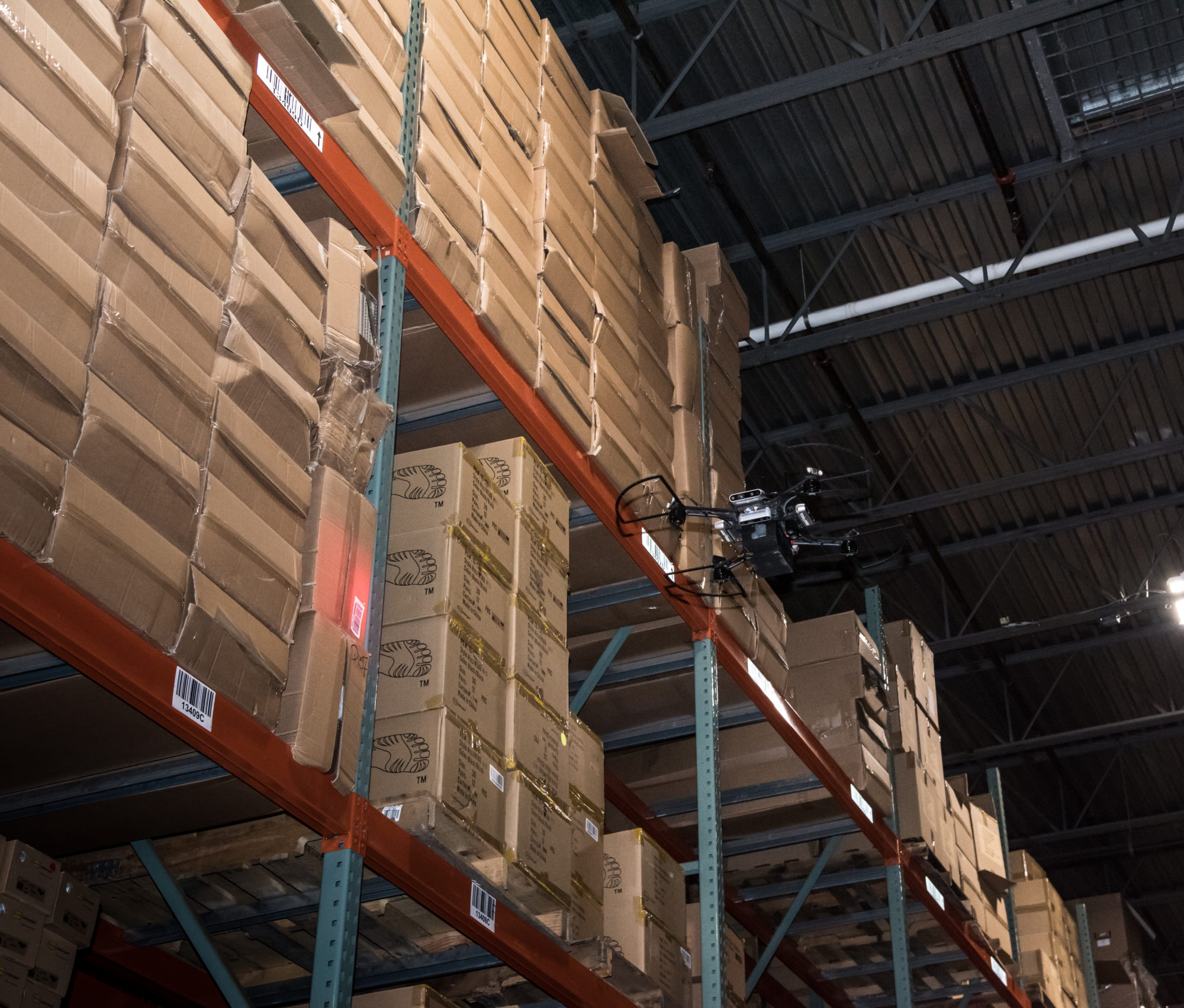


Corvus & ending drudgery

Inventory reconciliation today is a manual job, and every single manufacturer and warehouse has to get it done.
Here’s the whole job:
- Climb into a forklift or bucket truck
- Scan each box at that level of the rack
- Lower the platform down to the next level of the rack
- Scan each box at that level
- Move the forklift over by 4 feet, to the next horizontal section of rack
- Repeat.
At almost every stage of human development, after a new invention speeds up most menial and repetitive tasks, we look back at how primitive we used to be. We think, “That old way of doing things was such a terrible use of a creative, thinking, feeling human being’s time.” This will be true for this list of intense drudgery, too.
My first job out of college was at a manufacturing company. And as much as I love software and living and working online, I use the physical goods made in a factory to live every part of my life.
Manufacturing should be an engine for any country. The type of manufacturing that a country focuses on could change based on their level of automation, but ignoring it is a mistake.
As I think about the future of manufacturing in the US, I see a lot of intensely drudgerous work that humans don’t want to do unless they absolutely have to. It’s possible to give people a better standard of living with more meaningful work. But first we need to build some infrastructure to make that possible—including reshoring, re-educating, and making machines remotely operable.
The US needs a thriving manufacturing sector. At the same time, we should unleash human potential to address higher-order problems.
We recently invested in Corvus Robotics, which moves us forward in both of those areas. Corvus builds autonomous drones that can scan inventory efficiently by flying through the aisles. The drones can fly 24 hours a day, even in a dark warehouse. And once they’re done with a flight, they land back on their docks, and the data is uploaded.
Does Corvus replace humans who used to do this job? Yes. And it collects the data faster, cheaper, and more efficiently, and it also provides insights that a human couldn’t. Because the drone is taking pictures instead of only scanning bar codes, it can also provide important information on which shelves are partially empty. As Corvus roll out more products, they will be able to track the movement of inventory more accurately in a way a human (or group of humans) cannot.
And equally importantly, the humans are now freed up to do safer and more interesting jobs.
I’m excited for the future that Corvus and others like them will build!
P.S. If you’re building software in any part of the manufacturing process, please get in touch.

Agency

I started writing this post a couple of months ago, when the world was crazy, but much less crazy than it is right now with the Ukrainian invasion. When the macro level is this out of control, when people are forced into situations they didn’t ask for, it drives home the point of what extreme lack of agency looks like. War is a time when individuals lose their sense of agency—over their own lives, and also over the direction of the world.
Agency is the ability of your effort to first affect the condition of your life, and then the condition of the world.
Without agency, you don’t believe that your effort means anything. Agency is tied to your sense of purpose — you can’t fulfill your purpose without agency. At a basic level, you must be able to
- perceive a choice
- make a choice
- act on the choice
- believe that the choice has the possibility to give you the result that you want to see.
This is so fundamental to human potential and achievement that “agency” is a driving characteristic I look for in investments.
In 2020, Nikhil wrote a post on trends for 2021, and he asked people in tech what their thoughts were. My answer was simple: individual agency. I wrote: “The next big thing in 2021 is agency – where people can construct their lives, regardless of location, and find a way to build the career and lifestyle they want.”
Over the last few years, I’ve realized that agency is the unifying idea that underpins Spero’s thesis.
It’s about investing in the things that enable agency. The 3 different components of “things that make life worth living” are all related to people’s agency—their ability to choose what happens in their lives and the world.
- Wellbeing: the agency to live your life with the physically and mentally capability that you choose. To be able to access your data, choose your path to wellbeing, as you define it.
- Sustainability: the agency for people to have a positive impact on the planet, while also choosing abundance. The ability to make informed choices that reflect their values while thriving and enabling the planet to thrive.
- Learning, work, and play: the agency to choose your path, learn what you want to, work on problems that energize you, build the life you want to have, and enjoy yourself with the people that matter.
Agency makes life worth living.